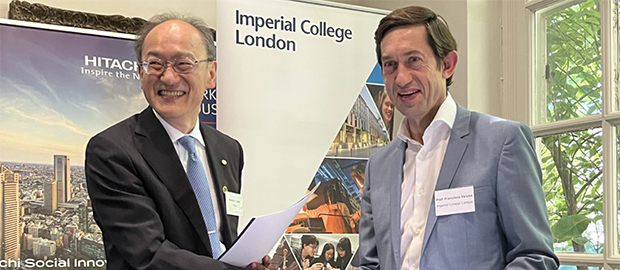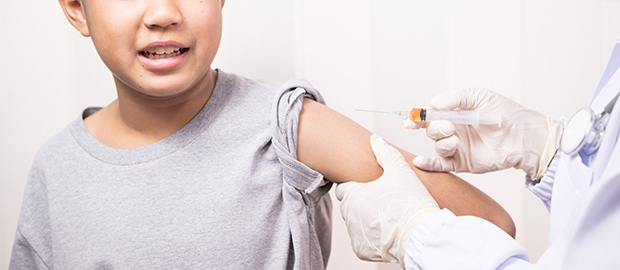Your weekly digest of policy news, funding competitions, and calls for evidence.
What’s been in the news?
Prioritising global health: HERA provides a list of the top three health threats to prepare for
A priority list has been produced by the EU Commission’s Health Emergency Preparedness and Response Authority (HERA), outlining the top three health threats that require coordinated action at EU level to ensure proper medical countermeasures.
The HERA Board came to a consensus on a list of life-threatening or immensely harmful health hazards that are more likely to spread across Member States. These are:
- Pathogens with high pandemic potential.
- Chemical, biological, radiological, and nuclear threats.
- Threats caused by antimicrobial resistance.
By identifying the major threats to health security, HERA notes that international policy intervention will help to develop pharmaceuticals, diagnostics, medical devices, personal protective equipment, manufacturing, and potential inventory expansion as needed.
The process of ensuring appropriate medical measures is initiated and managed by bodies such as HERA, along with other Commission services and EU agencies. These organisations ensure that investment continues to focus on protecting public health and health safety with respect to the availability of health care measures.
Stella Kyriakides, Commissioner for Health and Food Safety, said:
‘For the first time, today we present the top health threats we should be preparing for, and working to respond to. This exercise is the first step in ensuring that medical countermeasures can be made available and accessible for all Member States swiftly when needed. HERA has been set up as our watchtower for future health emergencies, and I am pleased that it is now tangibly starting to deliver on this mission.’
Imperial and Hitachi Ltd collaborate to launch decarbonisation research centre
To address key challenges in decarbonisation and climate repair, Imperial College London and Hitachi are developing a research centre, to collaborate on research towards reaching net zero emissions.
There are planned projects that will drive further research into carbon management, the decarbonisation of energy and transport, carbon dioxide removal and biodiversity. Imperial College London has a history of finding meaningful ways to solve issues such as climate change, such as the Transition to Zero Pollution initiative.
Professor Mary Ryan, who leads Imperial’s Transition to Zero Pollution initiative, said:
‘There is greater urgency than ever before to tackle global pollution, of which CO2 is one of the biggest sources […] This joint research centre will bring together world-leading scientists and innovators in decarbonisation and climate repair to develop new technology and solutions to the climate emergency.’
The effects of Covid-19: A decline in global vaccination coverage
The largest persistent decline in childhood vaccinations coverage in nearly 30 years is documented in official data released by WHO and UNICEF.
Between 2019 and 2021, the proportion of children who received three doses of diphtheria, tetanus, and pertussis vaccine (DTP3) decreased by 5%. Consequently, 25 million children missed one or more doses of DTP from regular vaccination programmes in 2021 alone. This shows that more children are at risk of catastrophic and preventable illness, which can have harmful effects on overall health outcomes for children.
This decrease was found to be due to Covid-19-related issues such as increased numbers of children living in conflict and vulnerable environments where access to vaccination is often difficult, increased misinformation, service and supply chain disruptions, and lack of response efforts. Other determinants such as limited access and availability of vaccination services were also contributing factors.
Organisations such as the WHO and UNICEF are collaborating with Gavi, the Vaccine Alliance and other partners to implement the Global Immune Agenda 2030 (IA2030). This policy-implemented strategy allows countries and associated global partners to achieve the goals set to prevent disease through vaccination, ensuring that vaccinations are available for anyone, anywhere, at any age.
Dr Seth Berkley, CEO of Gavi, the Vaccine Alliance said:
‘It’s heart-breaking to see more children losing out on protection from preventable diseases for a second year in a row. The priority of the Alliance must be to help countries to maintain, restore and strengthen routine immunization alongside executing ambitious Covid-19 vaccination plans, not just through vaccines but also tailored structural support for the health systems that will administer them.’

Consultation on Extending the UK REACH Submission
UK REACH is seeking views on proposed measures to extend the current UK REACH submission deadlines for transitional registrations. The UK REACH (Registration, Evaluation, Authorisation and Restriction of Chemicals).
Deadline: 1 September 2022
Greenhouse gas removals (GGR) business models
The Department of Business, Energy & Industrial Strategy is looking to set out the Government’s initial proposals for a business model to support deployment of engineered GreenhouseGas Removal (GGR) projects. They are seeking views on the early proposals, the main design elements of the business model, and options for developing a market for negative emissions in the UK.
Deadline: 27 September 2022
Further information can be found on the UK Parliament website.
Horizon Europe
To find more on eligibility for Horizon Europe funding for your sector, you can view the national contact points on the Government website as well as search for the European Funding and Tenders. Further information on the UK’s association to Horizon Europe is available in the UK participation in Horizon Europe document.
Further information on the SME and start-up fund can be found on the European Commission website.
Horizon Europe Guarantee
This funding is to deliver the UK government’s Horizon Europe guarantee, open to UK-based organisations successful in the first and second wave of Horizon Europe grant awards.
Deadline: No submission deadline
Faraday Battery Challenge Round 5 Innovation: Feasibility Studies
UK registered businesses can apply for a share of up to £25 million across two strands, for innovation in propulsion battery technologies for electric vehicles. Total costs must be between £100 000 and £750,000 and last up to 12 months.
Deadline: 17 August 2022
Design Foundations July 2022
UK registered organisations can apply for a share of up to £2 million for early-stage, people and planet centred design projects to influence their future R&D activity. This competition is open to single applicants and collaborations. Project leads must be UK registered businesses of any size and public sector, charity or not-for-profit.
Deadline: 31 August 2022
APC22: Industrialising net-zero automotive technology
UK registered businesses can apply for a share of £40 million for late-stage R&D projects based around a net-zero automotive future. Project leads must be UK-registered businesses of any size. Consortia must include a vehicle manufacturer or Tier 1 supplier and must involve at least one micro, small or medium-sized enterprise (SME).
Deadline: 7 September 2022
Knowledge transfer partnerships (KTP): 2022 to 2023 Round 3
UK registered academic institutions, RTOs or Catapults can apply for a share of up to £9 million to fund innovation projects with businesses or not for profits. Organisations must be a UK registered higher education or further education institution, research and technology organisation (RTO) or Catapult collaborate.
Deadline: 14 September 2022
You can find further details of the funding calls on the Government website.




